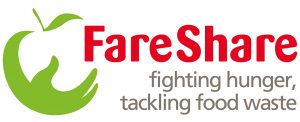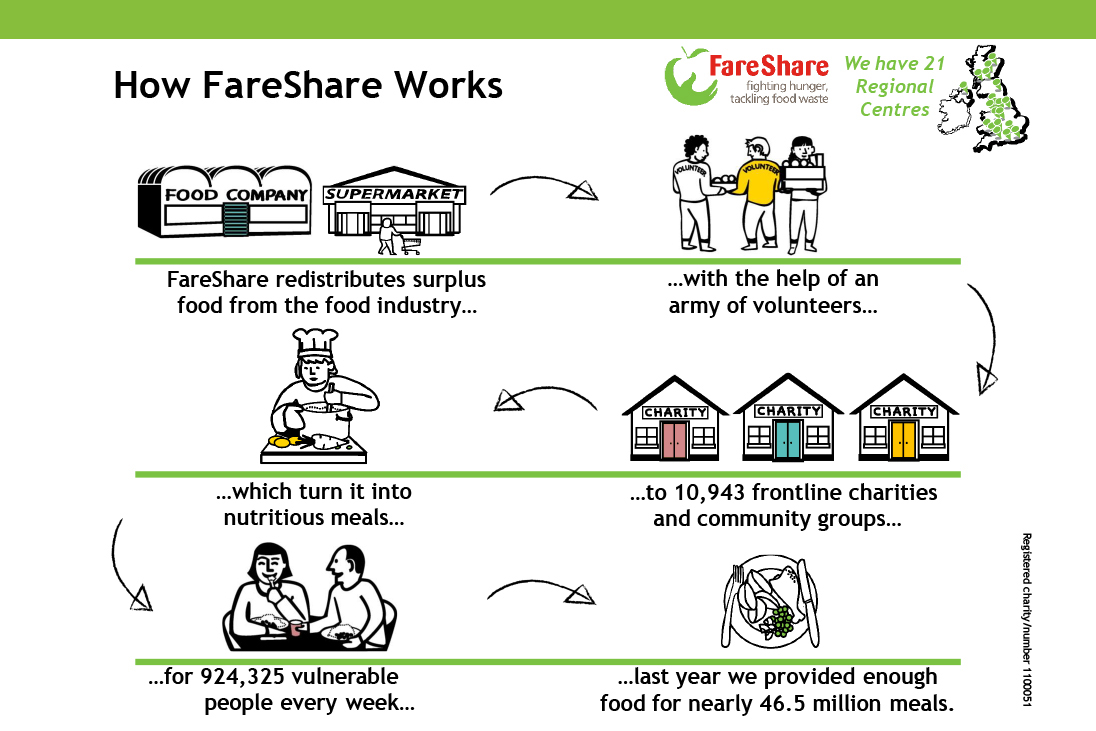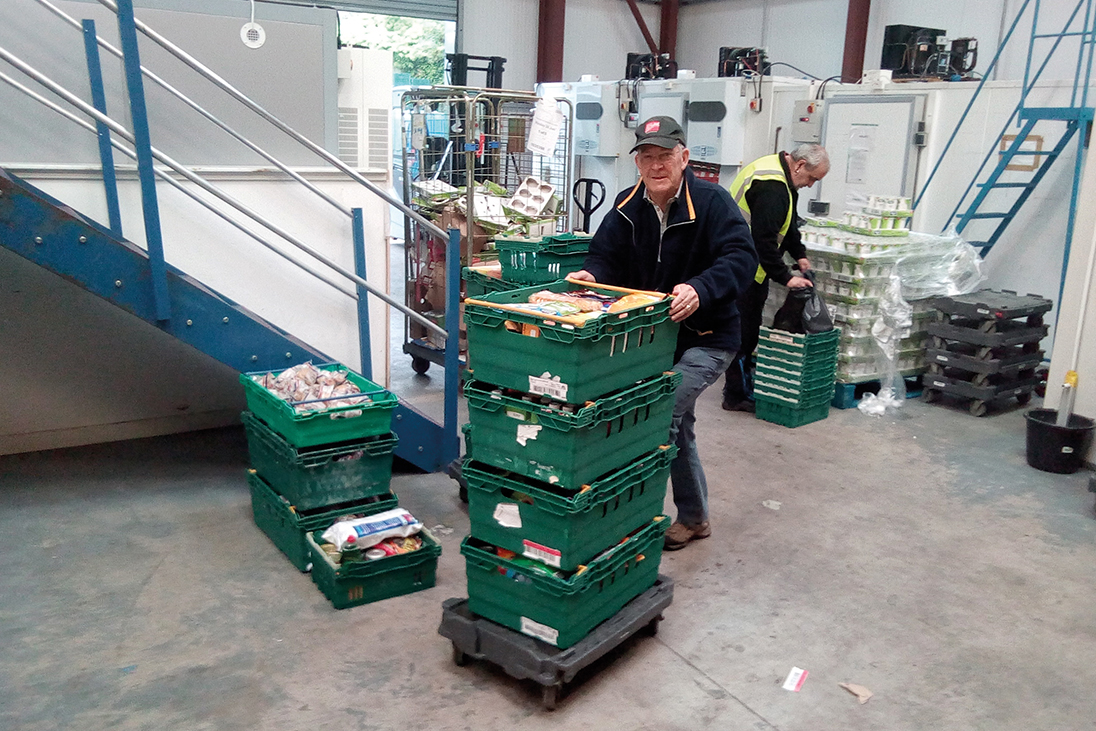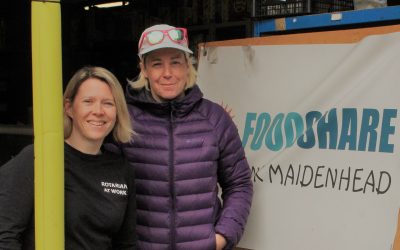An estimated 250,000 tonnes of perfectly edible food is wasted in the supply chain each year in the UK.
That massive amount could be saved from disposal and make a significant difference to efforts to tackle food poverty.
FareShare, the UK’s largest charity tackling hunger and food waste, can access only 7% of the wasted meals mountain.
There is plenty of scope for it to do more, and Rotary clubs have been encouraged to follow the example of the Dundee club to tackle the serious issue.


FareShare | Fighting hunger, tackling food waste in the UK
Some of our members have become volunteer drivers for FareShare, delivering surplus supermarket food to charities and community groups who turn it into meals for vulnerable people.
Supermarkets can find themselves with surplus stock for a number of reasons.
As well as over-estimated customer demand, there can be packaging or labelling errors and food that is past its ‘best before’ date, but is covered by manufacturers’ extension letters.
Meat, fish, eggs and dairy products are accepted from supermarkets, as are fruit and vegetables and chilled ready meals.
Ambient food, including pasta, cans and cereals are also received along with bakery products.
Rather than sending it to landfill and incurring disposal charges, the supermarkets donate their surplus food to FareShare.
Projects like FareShare are helping people across the country who are struggling to feed themselves and their families, while reducing the reliance on emergency food provision.”
Across the UK the organisation, whose motto is ‘fighting hunger, tackling food waste’, receives tens of thousands of tonnes from the food industry.
Although FareShare receives only a small portion of the UK’s wasted meals’ mountain, the scale of its operations is staggering.
Last year, across 1,900 towns and cities in the UK, it helped to feed almost one million people each week. Almost 11,000 charities and community groups received deliveries, saving an estimated 20,000 tonnes of surplus food from waste.
FareShare worked with 500 food partners within the supply chain, from growers and manufacturers through to supermarkets.
The meal-providing charities pay a membership fee to FareShare to cover the cost of the service.


How FareShare works – step by step
Without the surplus supermarket food, many people using the centres would struggle to receive regular meals.
FareShare say that a fifth of their charity members would have to close if they didn’t receive the service.
The Rotarians in Dundee are among 1,500 volunteers across the UK network, but FareShare say they always need more people to help organise stock and drive delivery vans.
FareShare has been operating for 25 years. It presently runs 21 regional centres across the UK, with four warehouses in Scotland. Dundee was the first to open north of the border in the charity’s first year.


FareShare save good food from going to waste, and redistribute to those in need.
FareShare in Dundee, with the support of local Rotarians, has received influential backing.
Joe FitzPatrick, Scotland’s public health minister and SNP MSP for the Dundee City West constituency, which includes the FareShare warehouse, paid a recent visit.
He said: “Everyone in Scotland should have access to fresh and healthy food.
“Projects like FareShare are helping people across the country who are struggling to feed themselves and their families, while reducing the reliance on emergency food provision.
“The Scottish Government has been clear that UK Government welfare cuts and benefit sanctions have continually pushed more and more people into food poverty, and increased the demand and number of food banks in Scotland.”
Today we’re saying a huge thank you to all the amazing FareShare supporters – our volunteers, food partners partners and all our Regional Centres, who work hard every day to fight poverty and tackle food waste. You’re all incredible #ThankYou pic.twitter.com/YzNjLJMDZE
— FareShare (@FareShareUK) October 3, 2019
He continued: “This shocking trend has to stop, and we will continue to fight those changes.
“Relying on food banks is unacceptable and it’s something we want to eradicate. No-one should need face those conditions in a modern country.
“Our ambition is to help community initiatives to support people in a dignified way and try to address the underlying causes of food poverty.
“It’s encouraging to see FareShare bringing people and organisations together to deliver programmes that reflect this.”
It empowers communities to take an active role in creating projects that deliver for local people in a dignified way, and this also builds greater resilience within communities as we try to find the answers to tackling inequality for long term benefit.”
Joe FitzPatrick considered FareShare’s model as a great example of a sustainable solution to food poverty.
“It empowers communities to take an active role in creating projects that deliver for local people in a dignified way, and this also builds greater resilience within communities as we try to find the answers to tackling inequality for long term benefit,” he stated.
Mr FitzPatrick said FareShare and the retailers, who contribute surplus food, also help towards Scotland’s target to reduce the one million tonnes per year of food waste by 33% by 2025 as part of the Food Waste Reduction Action Plan.
“This target focuses on prevention, and the diversion of surplus food that might otherwise be wasted to projects like FareShare.
“It’s a perfect example of the kind of actions required to achieve that target,” he added.
For more information, visit the FareShare website.


























































